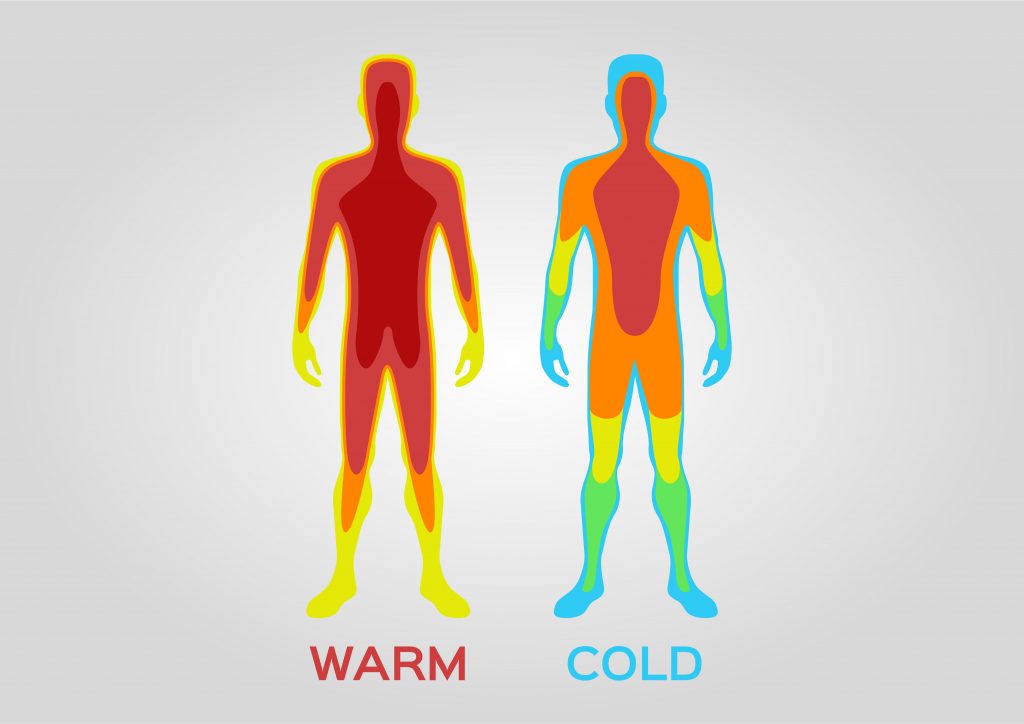Impact of Melatonin on neural correlates and functional network of cold skin temperatures and the functional resting state connectivity of the default mode network (DMN)

In humans, Melatonin plays many complex roles varying from its function as a local radical scavenger to an endocrine receptor dependent modulator of sleep, circadian rhythms, body temperature and the immune system. The main source of Melatonin that is circulating through the blood system origins from the pineal gland. Extrapineal sources of melatonin exist throughout the body especially in the mucosa of the gastrointestinal tract. In the last few years Melatonin revives clinical attention.
Humans regulate their core body temperature (brain temperature) within a narrow range of about 36.5°C. Interaction of heat production in the core (inner organs and muscles) and heat dissipation from the shell (skin) generate a circadian rhythm of about 0.5 °C amplitude. In the evening Melatonin onset at dawn (Dim Light Melatonin Onset=DLMO) and a decrease in core body temperature mark the opening of the sleep window in human everyday behavior. Melatonin interacts with the temperature regulating systems. In the hypothalamus and other brain regions Melatonin produces temperature adaptations. Melatonin also upregulates skin blood flow in the extremities. All these changes seem to be essential in sleep regulation.
CURRENT STATE
This is a basic research project that investigates how Melatonin acts on human temperature regulation. Functional Imaging MRI techniques allow us to watch at the human brain, or more precisely at the neuronal networks, at work. We try to investigate in young healthy humans the effect of Melatonin on neuronal correlates and its network of the temperature regulating system. Secondly we’re interested in the effect of Melatonin on functional neuronal connectivity of the default mode network (DMN).
The project is sponsored by the UPK Forschungs Förderungsfonds (UPK FFF).
PEOPLE
Study design: Martin Meyer, Kurt Kräuchi (Chronobiology), Claudia Lenz (Neuropsychiatry), Stefano Magon (MIAG)
MSc student: Romeo Hagemann
COLLABORATION
(Intra-institutional)
Prof. Stefan Borgwardt, Department of Neuropsychiatry, University of Basel, Switzerland
Link: https://neuropsychiatry.unibas.ch/en/home/
Prof. Dr. phil. Oliver Bieri Paravicini and Dr. Francesco Santini, Department of Radiological Physics, University Hospital Basel, Switzerland
(Inter-institutional)
Prof. Hans-Peter Landolt, Chronobiology and Sleep Research group, Institute of Pharmacology and Toxicology, University of Zürich, Switzerland
Link: https://www.pharma.uzh.ch/en/research/chronobiology/areas/chronobiology.html
PUBLICATIONS
Physiol Behav. 2015 Oct 1;149:203-11. doi: 10.1016/j.physbeh.2015.06.014. Epub 2015 Jun 11.
Daytime variation in ambient temperature affects skin temperatures and blood pressure: Ambulatory winter/summer comparison in healthy young women.
Martinez-Nicolas A, Meyer M, Hunkler S, Madrid JA, Rol MA, Meyer AH, Schötzau A, Orgül S, Kräuchi K.
